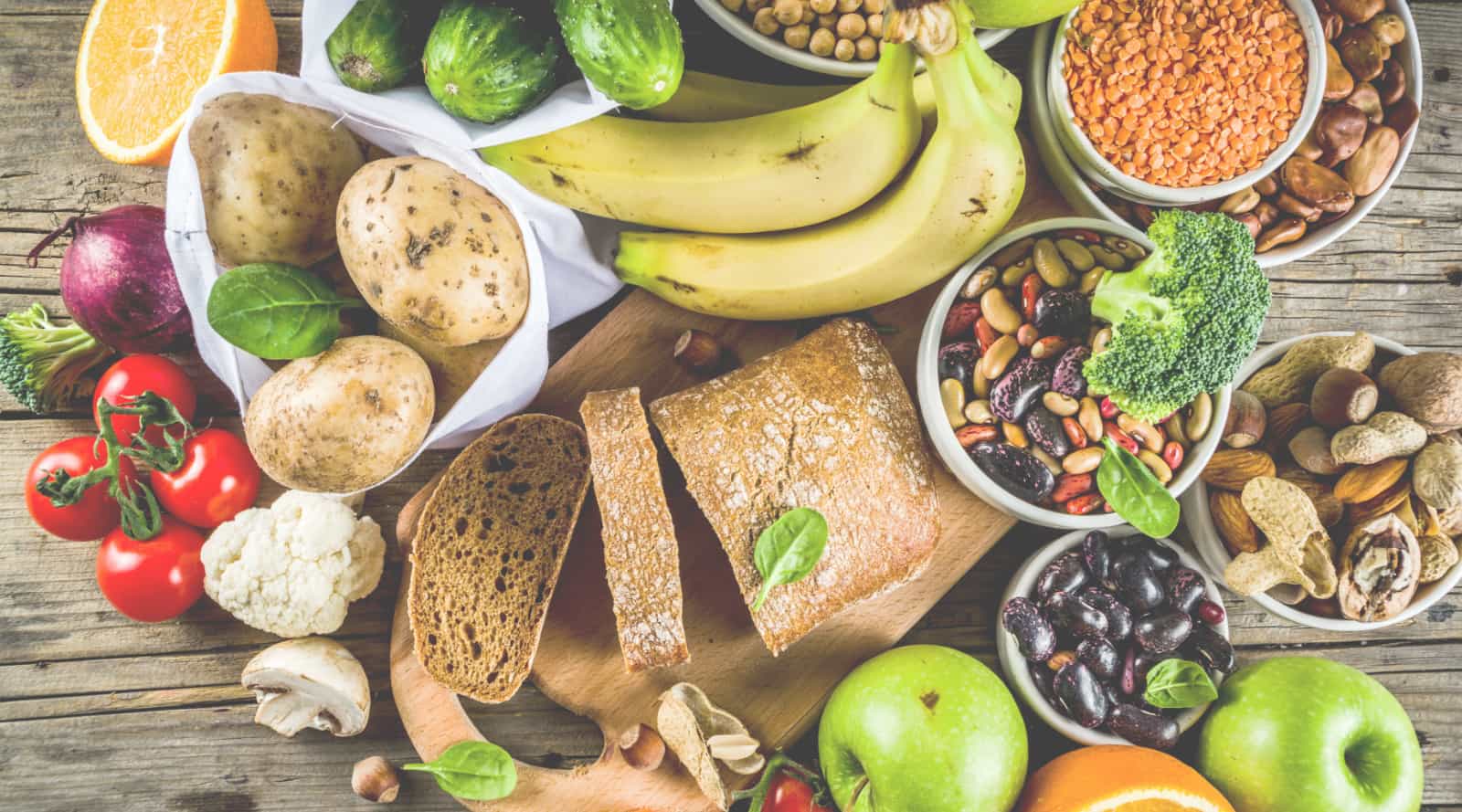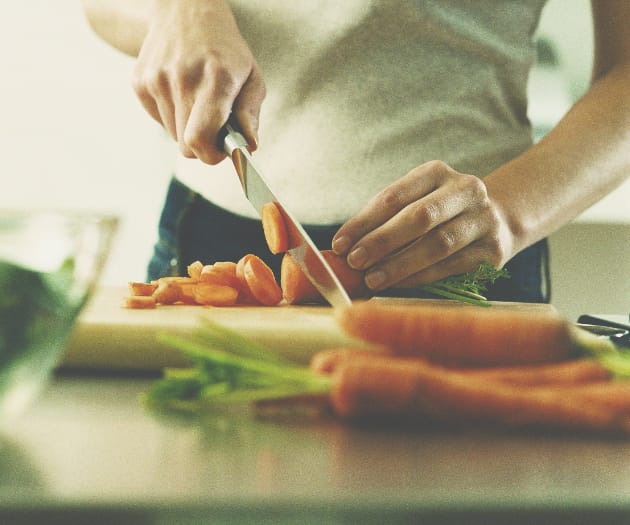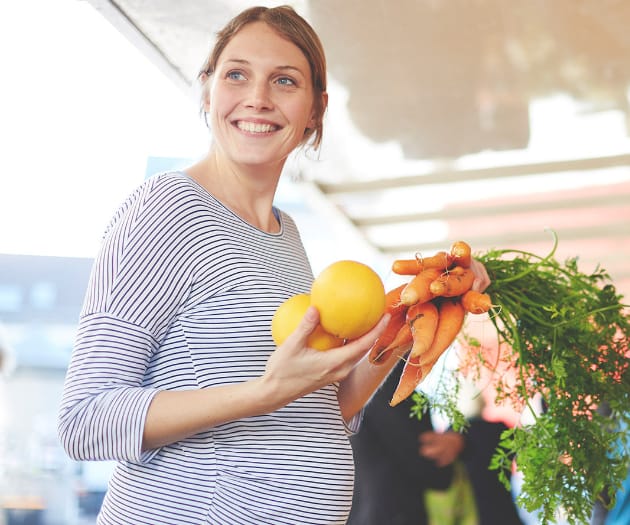Introduction
Looking after your diet and nutrition is essential when you’re pregnant. But with all the information out there, it can be hard to keep track of all the dos and don’ts.
Here’s a list of what to eat to take care of you and your baby’s health, and some of the foods to avoid to prevent the risk of infections such as listeriosis and toxoplasmosis. For a full list of foods to avoid, visit the NHS website.
Best foods to eat when pregnant
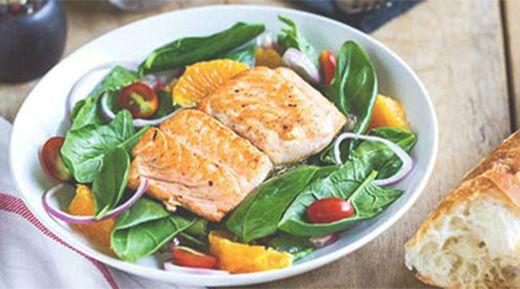
One portion a week of oily fish (140g/5oz) such as salmon, fresh tuna or sardines has most of the omega 3 LCP fatty acids your baby needs for their developing eyes and brain, along with vitamins A and D, and iodine.
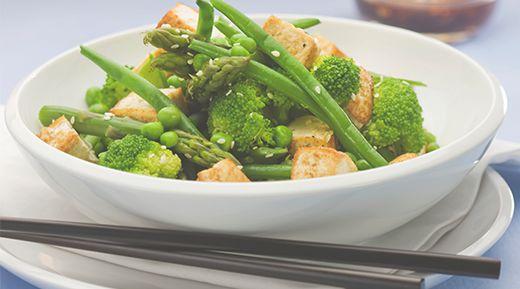
Green vegetables like broccoli, peas, spring greens and spinach contain plenty of folate to help your baby's development, plus loads of other vitamins and minerals, including iron. Aim for 5 portions of fruit and veg a day. You'll still need to take 400 mcg supplement of folic acid up to week 12 of pregnancy to make sure your baby is fully protected.
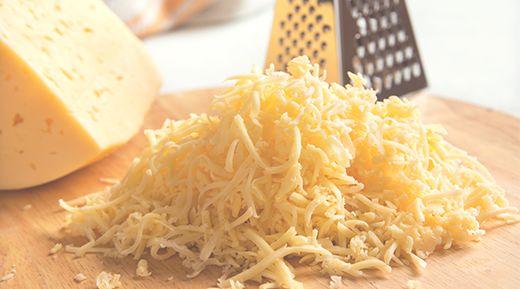
Hard cheeses are a fantastic source of calcium for your baby's developing bones and teeth. You should aim for 2-3 portions of dairy food a day - 30g of cheese counts as 1 portion. Go for lower-fat options, and avoid mould-ripened cheeses, like Camembert, or blues like Stilton to maintain a safe pregnancy diet.
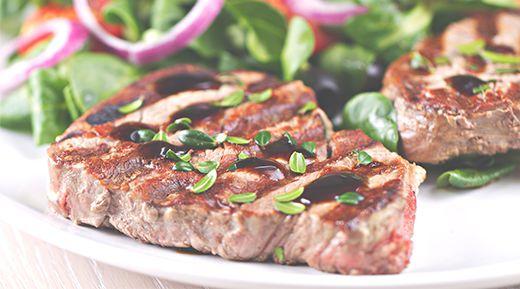
Lean red meat is the best source of iron and protein. If you're vegetarian or vegan, fortified breakfast cereals, wholegrain bread, eggs and pulses all provide a good amount.
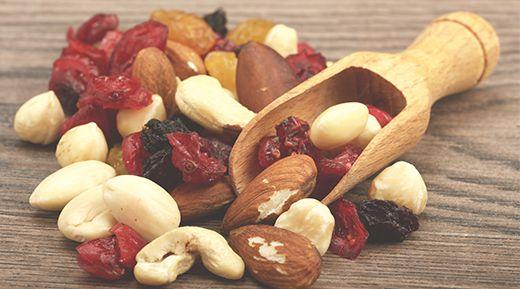
Dried fruit including prunes, raisins and apricots contain lots of essential nutrients, including iron and calcium. They're also a valuable source of fibre to help prevent constipation and piles. 30g of sultanas, raisins or mixed fruit count as 1 portion of your 5 a day.
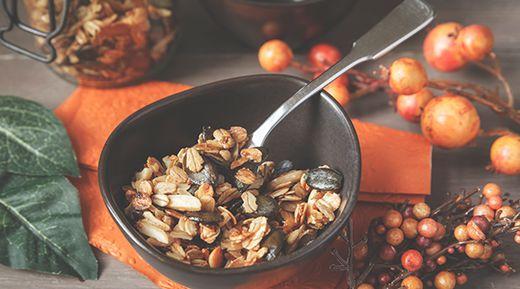
Nuts and seeds make a healthy, energy-boosting snack in pregnancy and are packed with a variety of nutrients including essential omega 3 fatty acids, vitamin E and iron. It's fine to eat peanuts and tree nuts during pregnancy, as long you're not allergic to them of course.
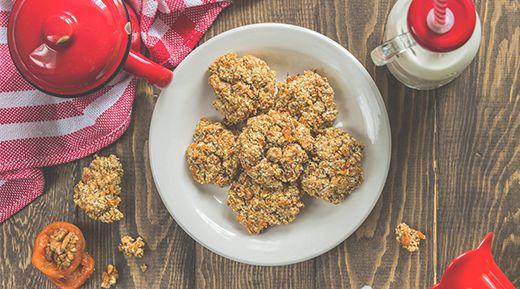
Wholegrain breakfast cereals with no sugar are another source of fibre. Fortified cereals contain folic acid and iron and skimmed or semi-skimmed milk is a good source of iodine.
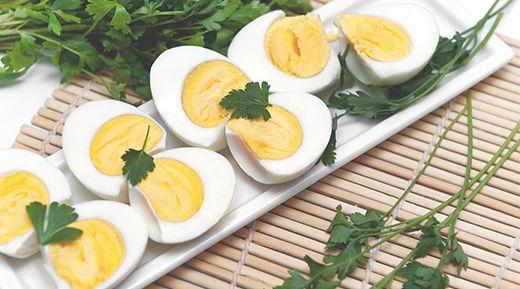
Eggs are another convenient source of protein as well as iron and vitamin D. Make sure they are thoroughly cooked - the white and yolk should be solid not runny; Unless of course you are using eggs produced under the British Lion Code of Practice (the red lion logo is stamped on the shell), in which case these are safe for pregnant women to eat raw or partially cooked.
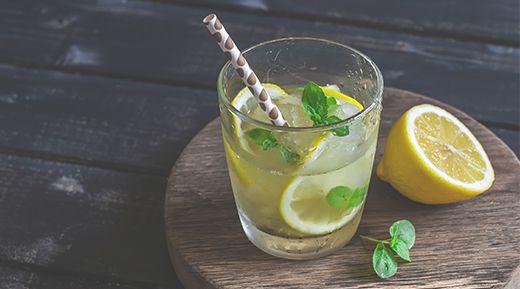
Water is essential for good health and it's even more important to drink about 6-8 glasses a day during pregnancy. Skimmed or semi-skimmed milk, fruit juice or herbal teas are good alternatives to help meet your daily fluid needs.
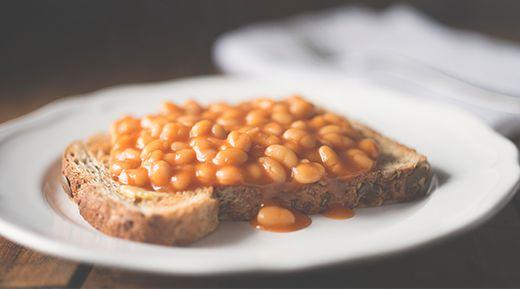
Baked beans are surprisingly full of fibre, protein and iron. Three heaped tablespoons of beans on wholemeal toast counts towards your 5 a day.
Foods to avoid when pregnant
Here's some of the foods you should avoid during pregnancy, for a full list, please visit the NHS website.
- Certain Fish Avoid shark, swordfish and marlin in pregnancy
- Unpasteurised soft cheese (cheeses with a white rind such as brie and camembert)
- Raw seafood Always eat cooked rather than raw shellfish (including mussels, lobster, crab, prawns, scallops and clams), as they can contain harmful bacteria and viruses that can cause food poisoning. Cold pre-cooked prawns are fine
- Raw or undercooked meat (for example beef carpaccio, steak tartare) again as it has a risk of toxoplasmosis
- Pâté Avoid all pâtés, including vegetarian ones as they may contain listeria
- Raw or partially cooked eggs (if they are not produced under the British Lion Code of Practice, the red lion logo is stamped on the shell) as they may contain salmonella.
- Caffeine Limit your consumption to 200mg a day. Go for herbal tea, decaffeinated tea or coffee, or boiled water with a slice of lemon instead
Cooking tips for a healthy pregnancy diet
- Wash your fruit and vegetables and salad to remove all traces of soil before preparing them. Tip: Put a tablespoon of vinegar in a kitchen sink filled with water. Don't let the fruit soak, though, to make sure that it retains its minerals and vitamins
- Avoid eating leftovers or at least reheat them until piping hot
- Wash your hands before preparing meals and sitting down to the table
- Ensure that any place where you keep food is clean. Regularly clean the fridge and cupboards
- Wash all surfaces, utensils, and your hands, after preparing raw meat to help avoid toxoplasmosis
- Heat ready meals until they're steaming hot all the way through – this is especially important for meals containing poultry
Which supplements to take during your pregnancy
Eating a balanced diet is important during pregnancy but speak to your midwife or GP about recommend supplements you should take as well.
- Folic acid – helps prevent birth defects known as neural tube defects, including spina bifida. Take 400 micrograms every day up to week 12
- Vitamin D – required for the absorption of calcium and phosphate in the body, which are needed to keep bones and teeth healthy. You need enough to provide your baby with vitamin D for the first six months of their life. Take 10 micrograms of vitamin D each day whilst pregnant and breastfeeding.
Want more information? Why not check out our food recommendations specifically tailored to each trimester.
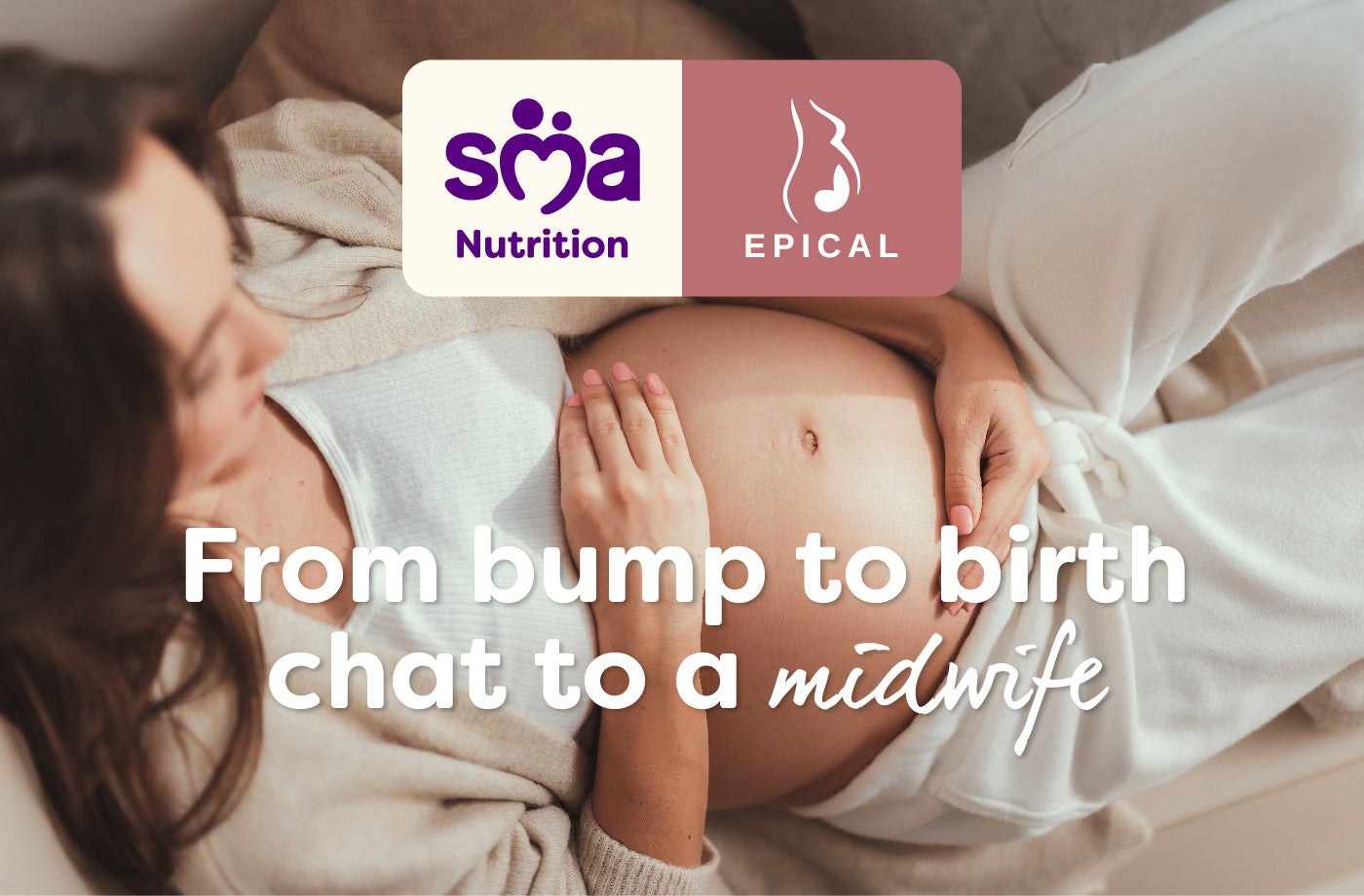
Midwife live chat
We have partnered with Epical Global giving our SMA® Baby Club members instant access to a team of expert midwives, ready to answer all your questions. The midwife team are on hand via live chat Monday to Friday, 10am – 8pm.



